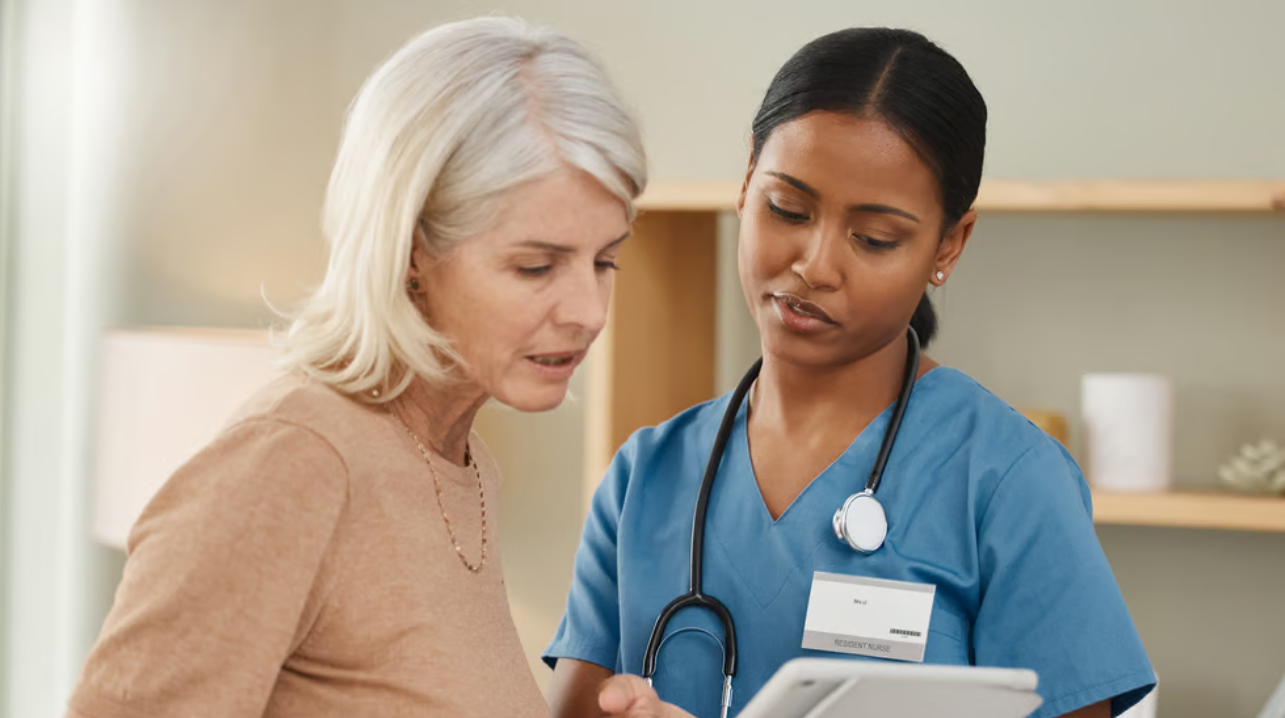At least 44 biosimilars have been approved, and utilization is increasing. This is good news for patients and plan sponsors because when biosimilars enter the market, they increase competition and draw down pricing for both the biosimilar and the reference product over time. Over the last two years alone, the market share for biosimilars in relevant therapeutic areas has surged from 13% to 61%, with many biosimilars entering the market at prices up to 40% lower than their reference products.
More interchangeable biosimilars expected in 2024
As the pipeline evolves in 2024, it will be important to keep an eye on interchangeable inflammatory biosimilars for Humira. Interchangeability is a regulatory designation that allows pharmacists to automatically substitute a biosimilar for its reference drug, much like a generic. Most biosimilars that have been launched to date are not interchangeable and are only applicable to a relatively small number of patients. However, by mid-2024, some high-concentration biosimilars for inflammatory conditions are likely to gain interchangeability status, providing more options for a much wider population.
The emergence of these clinically equivalent, lower-cost alternatives to biologic medications necessitates an educational push across the health care ecosystem — especially for prescribers and patients — in order to optimize adoption.
How plan sponsors can prepare for an evolving landscape with more Humira biosimilars ahead
Even though most of the high-concentration interchangeables aren’t expected to reach the market until mid-2024, plan sponsors should start preparing now for their arrival. One of the most important ways to do this is by staying informed about pipeline developments as well as the unique clinical and non-clinical aspects of each of the products, For example: whether a biosimilar comes to market at a low or standard wholesale acquisition cost (WAC), high or low concentration dosage, whether or not it has an interchangeable designation, if a copay assistance program is available or not, understanding the differences in injection devices that may be needed, etc. With potentially 10+ Humira biosimilar versions available, we expect plan sponsors will have complex plan design decisions to make in 2024 and understanding these differences in products could have significant impact on plan design effectiveness.
Despite these differences product-to-product, if a formulary places these drugs on the same tier, plan sponsors should be aware that through the interchange process at the pharmacy, a prescription for the brand name could allow any of them to be dispensed.
Specialty pharmacists' role in the biosimilar market
This new paradigm heightens responsibility for specialty pharmacists, who, in the case of interchangeable biosimilars, will be expected to consult with patients and advise on therapy options in alignment with their benefit. To do so effectively, they’ll need to be extensively trained on the nuances of each therapy option—biosimilar, interchangeable biosimilar, or branded drug—and be able to leverage the right technology and processes to make the appropriate recommendations and simplify the experience for patients and prescribers.
It will also be important for payers to make sure they’re partnered with a specialty pharmacy that is preparing its clinicians, navigating interchangeable process enhancements and otherwise laying the groundwork for these arrivals now.
The importance of prescriber education to drive higher biosimilar adoption
In 2022, Evernorth conducted a study on prescriber perceptions of biosimilars in the U.S. The goal was to identify knowledge gaps and barriers that prescribers face in this area. This research uncovered three key gaps that Accredo, Evernorth’s specialty pharmacy, is working to address:
- Prescribers have low awareness of specific biosimilars – Most study participants who regularly prescribe medications for inflammatory conditions were unable to name pipeline biosimilars, including near-term biosimilars for Humira, and many were unfamiliar with the specifics of what an interchangeable biosimilar actually means.
- Some prescribers are unlikely to prescribe a biosimilar unless required – Certain specialist prescribers of inflammatory medications were less likely to prescribe a biosimilar compared to others. Another study showed that over 60% of providers across all therapeutic areas will only feel comfortable prescribing a biosimilar with an interchangeable designation.1
- Prescribers anticipate added administrative burden, but aren’t preparing accordingly – Some expect that biosimilars will increase administrative pressure due to patient uncertainty and new processes, such as prior authorization. However, few offices are taking steps to address these concerns.
How a specialty partner can help improve education and adoption
Evernorth’s research not only confirms some fundamental challenges, it also highlights the importance of an experienced specialty partner with the right resources to overcome them. For instance:
- Robust educational materials – To combat low prescriber awareness, a specialty partner should be able to provide and disseminate educational resources on available biosimilars—especially in the inflammatory space. Important topics to explain include low- and high-concentration formulations, interchangeability status as well as which biosimilars have financial assistance and/or additional services available for them.
- Targeted physician engagement – To help address various barriers among specific types of prescribers, a specialty partner can deploy a more intensive educational program custom-built for prescribers like dermatologists, rheumatologists and gastroenterologists.
- Administrative preparation – A specialty partner can help prescribers understand the administrative impact they can expect biosimilars to make on their office. Then, they can tailor the right processes and communication tools to ease the burden and simplify complexity. This can include extending prior authorization approval processes to include interchangeable biosimilars or tracking data on patient receptiveness to switch to an interchangeable biosimilar.
At long last, biosimilar options are starting to find their way into the hands of the patients that need them most. But there’s still a long way to go before prescribers and patients are fully comfortable with the new options at their disposal. That's why plan sponsors should partner with a specialty pharmacy equipped to proactively educate and communicate changes when it matters most.




